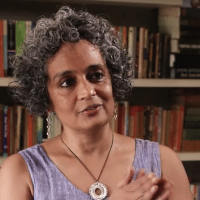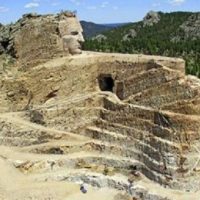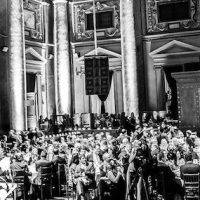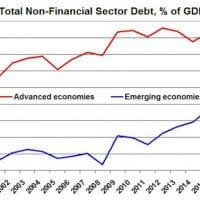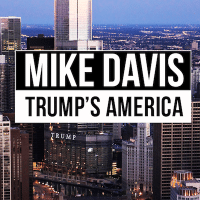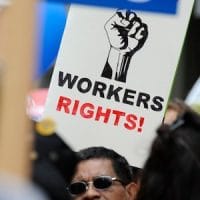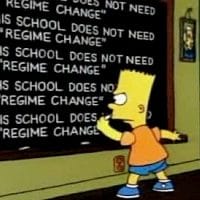-
Race, class and social strategy
Marxists have long understood that the workplace is the primary strategic site of class struggle, and that class struggle is essential for cohering a radicalized working-class majority with the capacity and will to overthrow capitalism in favor of socialism. At the same time, Marxists recognize our moral responsibility to oppose—and the strategic necessity to fight—all forms of exploitation and oppression.
-
We love the CIA!—or how the left lost its mind
“The Resistance” is steering so much of the left into a hard-right turn — including even Pacifica’s KPFA Radio-Berkeley.
-
Crackdown On Dissent is Dangerous
Writer-Activist condemns recent arrests of activists. She says ” I Am a Part of Society, I’m Not a Part of the State”
-
The UK government is being shamed in the Hague over its colonial record (again)
On 3 September, a four-day legal challenge to the UK’s sovereignty over the Chagos Islands began in the International Court of Justice (ICJ). The islands are part of an archipelago located in the British Indian Ocean Territory (BIOT), and home to U.S. airbase Diego Garcia.
-
The Atlas Network’s insidious impact on the ground
Over the decades, the Atlas Network has been financing a variety of organizations that seek to influence the public and promote capitalist ideas.
-
How is a pretext for a cold war manufactured?
A pretext is all that is needed to start a conflict, something with which the United States has experience, from the Spanish-American War, to Vietnam, Iraq… but its latest efforts to vilify Cuba are unique.
-
U.S. marks anniversary of death of Native American Chief Crazy Horse
He was the Sioux Chief of the Oglala tribe and a great warrior in the Sioux resistance to the white man’s invasion of the northern Great Plains, also known as the Great American Desert.
-
Atlas Network, the right-wing libertarians
Aram Aharonian and Álvaro Verzi Rangel, co-directors of the Observatory in Communication and Democracy (OCD) and Latin-American Centre of Strategic Analysis (CLAE), wrote a detailed analysis of the Atlas Network and its deep impacts in Latin America. We will be sharing a translated version of this article in parts, the first part is about the network itself and the later parts will address specific country cases.
-
Camilo Mejia analyzes the soft coup attempt in Nicaragua
Camilo Mejía wrote an open letter condemning the Amnesty report for being biased and actually contributing to the chaos and violence.
-
Another day older and deeper in debt…
The question of debt is often absent from media coverage of the progress, or not, of the world economy.
-
Mike Davis on Trumps America
Donald Trump is coming to Ireland. Behind the bluster, what does his presidency actually represent? Mike Davis—a world renowned American scholar, and author of several books—was interviewed by Seán Mitchell for Rebel, about the state of Trump’s America.
-
The Trump Administration’s continued attack on science
As of August 14, the federal government has attempted to censor, misrepresent, and otherwise stifle science over 150 times.
-
Forgotten workers and the U.S. expansion
There is a lot of celebrating going on in mainstream policy circles. The economy is said to be running at full steam with the unemployment rate now below 4 percent.
-
‘We would be opening the heavens to war’
CounterSpin interview with Karl Grossman on the weaponization of space.
-
Economic moats and American capitalism
In a 1999 interview with Fortune, legendary investor Warren Buffett coined the term “economic moats” to sum up the main pillar of his investing strategy.
-
“These days shall also pass, like a thousand days have before them”
Since the extreme right-wing government of Bharatiya Janata Party (BJP) came to power in 2014, there has been an increasing crackdown on political and student activists, who are often branded as Maoists and anti-nationals.
-
U.S.-backed violent coups are not new or rare
Nicaragua just defeated a U.S.-backed violent coup attempt, and no one cares.
-
A ‘regime’ is a government at odds with the U.S. empire
In the aftermath of the assassination attempt against Venezuelan President Nicolas Maduro, an article in the Miami Herald (8/5/18) reported that “a clandestine group formed by Venezuelan military members opposed to the regime of Nicolás Maduro claimed responsibility.”
-
Elections in Brazil–guess who turns up?
Just when you think that they have already done enough damage, that they have seen the light, and maybe they have repented and disappeared to enjoy the wealth they have amassed thanks to an insane capitalist system, they surface again like a cancer that no surgery or radiation has been able to remove.
-
In the wake of coup attempts in Nicaragua
Ongoing violence meant to destabilize the country and oust President Ortega, has cost the lives of 198 persons and severely damaged the economy.



